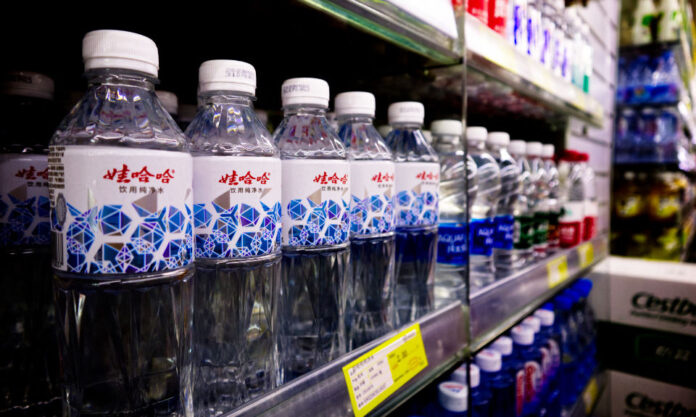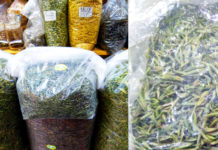Among the anecdotal indicators of a country’s being developing or developed is the availability of drinkable tap water.
A developing nation which has laid down the world’s most extensive railway network can add safe water pipes to that in record time, and surely will. But, for now, it remains nominally one of those watershed development issues.
I say, “nominally”, because I didn’t enjoy the tap water which I drank in France this summer. I actually suspect it. Even if it left the water plant uncorrupted, it may have passed through heavy metal pipes within the building. And, drinking British water for the first time in 4 years, I was often aware of a chlorine smell.
Perhaps I’m wrong to keep filling from those European taps unquestioningly. Perhaps it’s just as misguided as those who tell me that tap water here is cleaner than Wahaha.
“Wet Wales” has a comparative advantage for water production, of course. Rain is so plentiful there that Birmingham, 80km away (and bankrupt), receives water from Welsh reservoirs. It was Welsh water, too, that leaked through the roof of our storage unit, causing damage during Covid time.
But, counterintuitively, it was not the water itself that broke-down the papers and the duvets; it was the oxidation and the mold which accompanied that water. The blight affecting books was very similar to burning.
Had the water from that ceiling been pure water, that situation perhaps would have been different; I would still have a working PlayStation 2, not two dead ones. But pure water, used in the semiconductor industry, is a rare thing indeed, and far more expensive than gold.
Don’t confuse pure water with distilled water. Certainly, don’t confuse it with Watson’s water, or those Brita filters. Pure water is something so pure that drinking it is actually dangerous. Apparently, even small quantities of it will leach important nutrients out of your body. It’s the flip-side of the “detox” equation that no one ever thinks about.
Moreover, I am assured, pure water doesn’t taste good. It is precisely the absorbed non-H2O passengers in water that make water taste good. Pure water is reported to taste “flat”. I think I know what that means.
Anyway, chlorine aside, I like the taste of Welsh water with Chinese tea. And, though I’m not usually fond of tea made from boiled tap water in China, I know I can look forward to the day when I’ll travel this country, enjoying “soft” and “hard” varieties of local water directly from the tap.
By then, there’ll hopefully still be different fig-leaf criterion making it possible to maintain “developing” status. “Developing” is better than “Regressing”, a word that sometimes feels suitable for the UK.
In the meantime, I’m happy with the giant blue water bottles that we get delivered here in China. This large-bottle mineral water makes tea that satisfies me.
Oh, but do avoid that Guangzhou Evergrande water if you can. The company isn’t just a bad investment; it also produces (or just gentrified) the worst-tasting mineral water I’ve ever tried.












